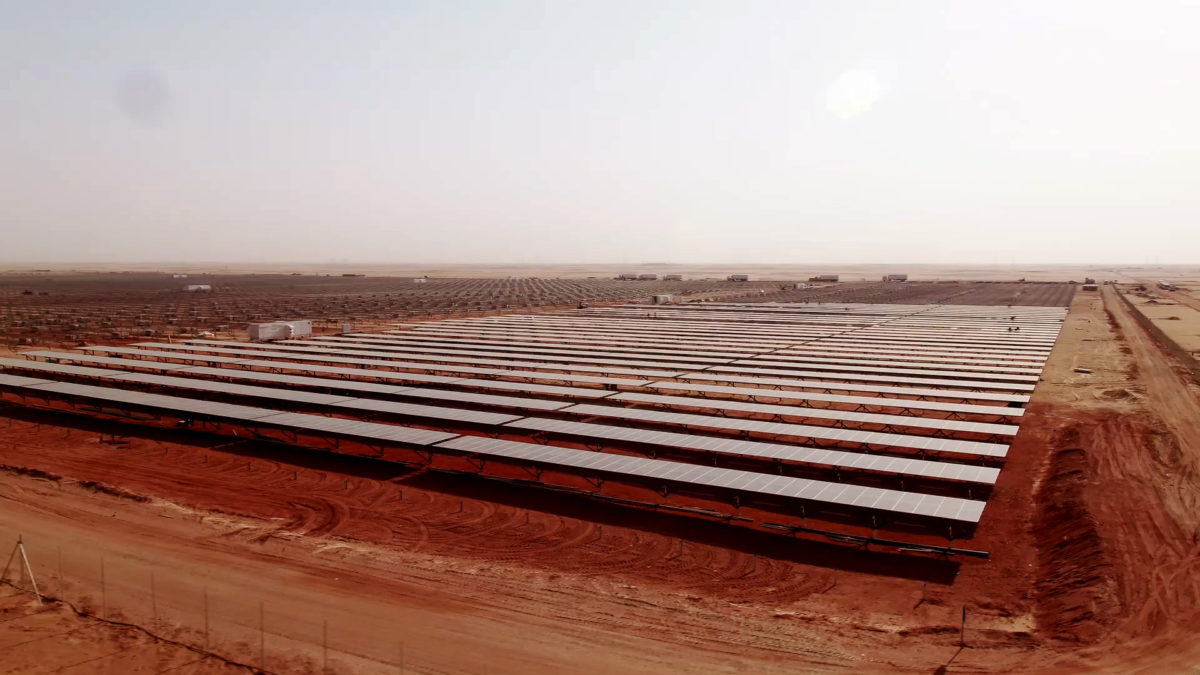The European Bank for Reconstruction and Development (EBRD) has announced the first of the 16 solar plants it has financed at Egypt’s huge Benban solar park has been connected to the grid.
The 30 MW plant was developed by a consortium led by Infinity Solar Energy SAE – an Egyptian company developing renewable energy projects in Egypt, Africa, and the Middle East – along with Germany’s ib vogt GmbH, investment company MMID and private equity fund BPE Partners. Dutch Development Bank the FMO and the UN’s Green Climate Fund were also involved in backing the scheme.
“This is really a milestone,” said Nandita Parshad, EBRD managing director for sustainable infrastructure. “It was not much more than a year ago that we signed the financing for these projects and the first one is already contributing to Egypt’s green transition. The speed with which these projects are already bringing clean energy to Egypt is a tribute to Infinity Solar, the Egyptian energy sector authorities and the support of the Aswan governorate.”
The European development bank’s 16 Benban projects reportedly have a cumulative capacity of 750 MW – more than half of the complex’s 1,465 MW contracted capacity. The sprawling 6 km² site comprises 32 projects, and during its inception made headlines as the world’s largest solar project.
Benban comes online
Popular content
During recent weeks the first Benban project developers have announced grid connection. This week, for example, Alcazar Energy started commercial operation for the first of its four projects at the site. That 64 MW project – AEES1 – as well as the other three Alcazar is developing for a total capacity of 256 MW, are part of the Nubian Suns development scheme backed by the International Finance Corporation, World Bank, Multilateral Investment Guarantee Agency and the Egyptian government.
The government deadline for the projects varies, with the latest set to come online in June. The majority of the Benban projects operate under a 25-year feed-in tariff scheme paying around $0.146/kWh for the first phase and $0.084/kWh in the second. In general, projects larger than 100 MW in scale will receive higher tariffs.
Egypt has now switched from FITs to auctions for procurement. A 200 MW tender in September drew bids as low as $0.02752/kWh. After seeing the price of solar power crossing the $0.03 threshold in the tender for the 200 MW Kom Ombo solar project in early August, however, the Egyptian Electricity Transmission Company has set a maximum price of $0.025 for the current tender for 600 MW of PV capacity in the west of Nile area.
This content is protected by copyright and may not be reused. If you want to cooperate with us and would like to reuse some of our content, please contact: editors@pv-magazine.com.



By submitting this form you agree to pv magazine using your data for the purposes of publishing your comment.
Your personal data will only be disclosed or otherwise transmitted to third parties for the purposes of spam filtering or if this is necessary for technical maintenance of the website. Any other transfer to third parties will not take place unless this is justified on the basis of applicable data protection regulations or if pv magazine is legally obliged to do so.
You may revoke this consent at any time with effect for the future, in which case your personal data will be deleted immediately. Otherwise, your data will be deleted if pv magazine has processed your request or the purpose of data storage is fulfilled.
Further information on data privacy can be found in our Data Protection Policy.